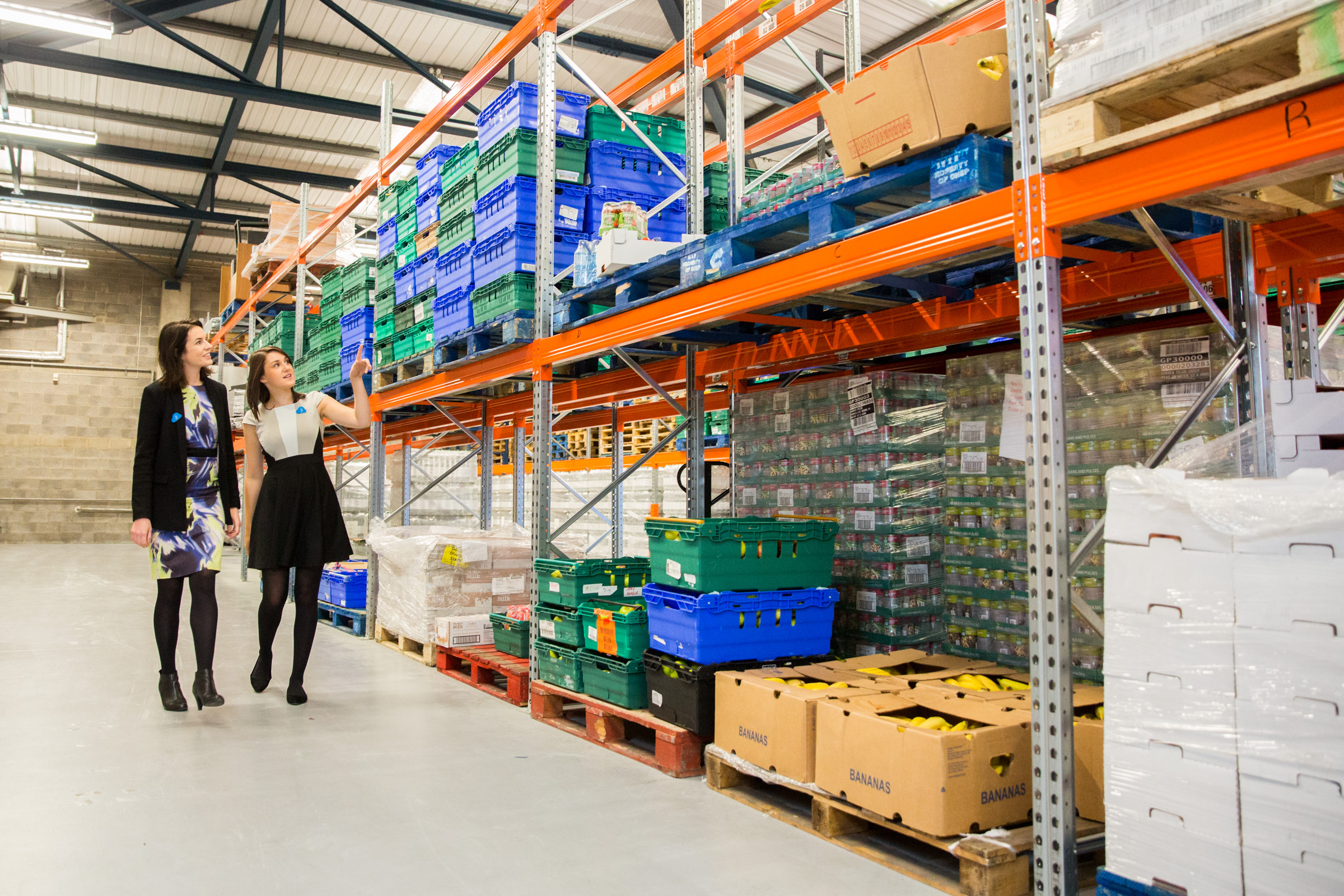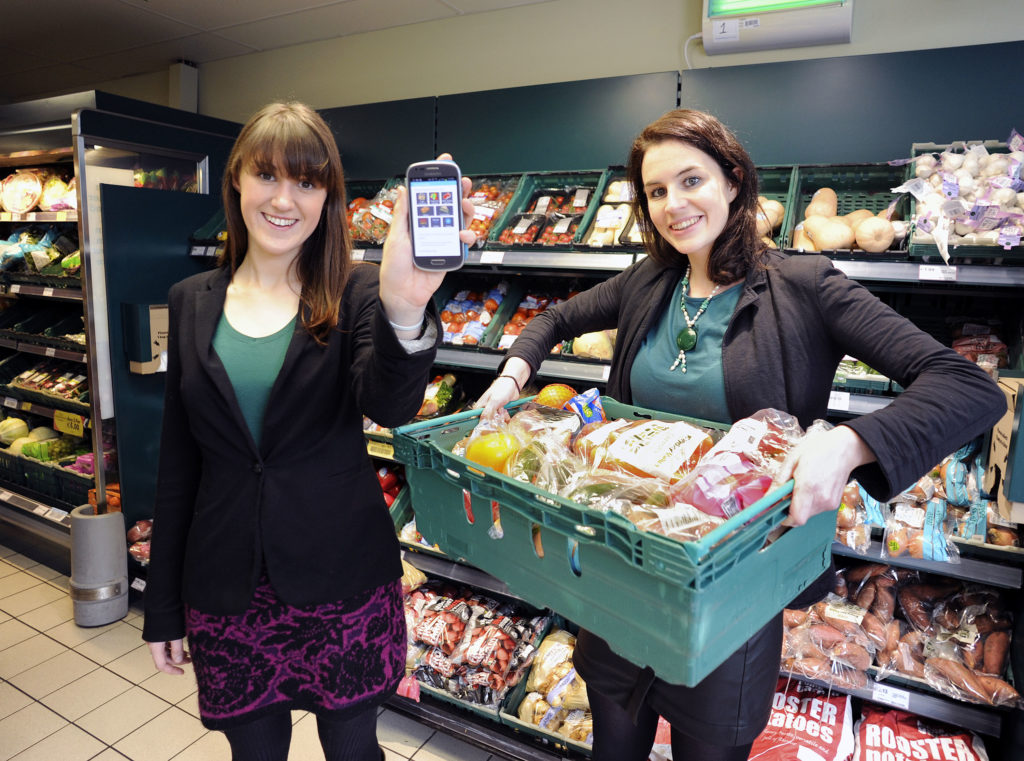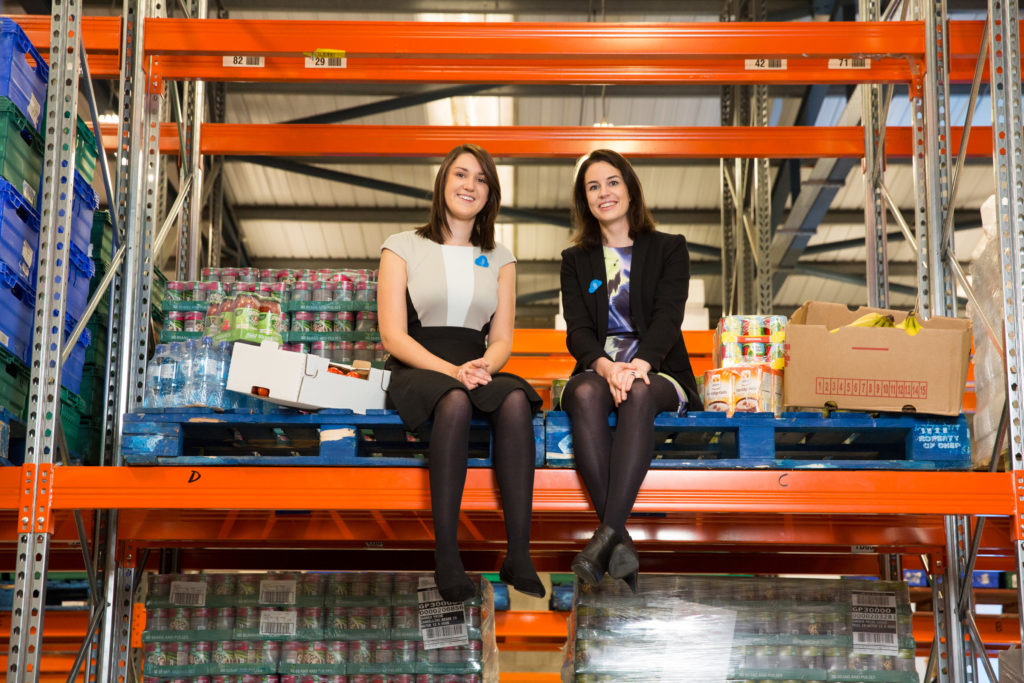
Solving the Challenges of Wasted Food and Food Poverty
January 31, 2017 — Blog
Approximately 30 per cent of food produced for human consumption is wasted across the food supply chain, which equates to 1.3 billion tonnes of food annually. This includes 45 per cent of all fruit and vegetables and 20 per cent of all meat.
This inefficiency has enormous economic, environmental and social consequences. Food loss and waste causes about $940 billion per year in economic losses. We use land the size of China, Mongolia and Kazakhstan combined – 250 cubic kilometres – of water and a whole range of other scarce resources to grow food that is never eaten. If food waste were a country, it would rank as the third highest national emitter of greenhouse gases after the US and China.
At the same time, 795 million people around the world suffer from severe hunger and malnutrition. With rising populations, wasting food is is a core challenge of for food security. The UN stated that if global food waste was reduced by just 25% we would have enough food to feed all of those who are malnourished.
While wasting food is a global problem, it manifests itself in different ways. In developing countries, there are higher levels of unintentional food loss, often as a result of poor equipment, transportation and infrastructure. In wealthy countries, waste happens at the consumer and producer level.

Reducing Food Waste is a Global Priority
There have been a series of positive developments to combat the loss of food. Reducing waste across the entire food supply chain has been put forward as a high priority action by the UN and EU. Under Champions 12.3, a coalition of CEOs, government ministers, global institution executives and civil society leaders are increasing political and social momentum to achieve Target 12.3 of the UN Sustainable Development Goals which is to halve food waste and reduce food loss globally by 2030.
However, due to the complexity of the global food system, there will always be some inevitable food waste. Food redistribution by diverting surplus food that is perfectly fit for human consumption to charitable groups has been put forward as one of the best win-win solutions for reducing wasted food and feeding people. It is a business-friendly, environmentally-sensitive, socially-responsible alternative to wasting good food.
FoodCloud is a social enterprise that connects businesses with surplus food with charities that need it. To make this happen, FoodCloud has two solutions.
FoodCloud’s retail level solution enables supermarkets to redistribute surplus food directly to local charities, establishing meaningful relationships and ensure no edible food goes to waste. It is currently operational in the UK and Ireland. Using the platform, staff in a store can upload the details of their surplus food. A local charity linked to the store through the FoodCloud system then receive a text message to notify them of the availability of the surplus food. The charity then collects the food and redistributes it to people who need it.
On a bigger scale, FoodCloud Hubs rescues, stores and redistributes large volumes and a diverse range of surplus food from farms, manufacturers, and distributors, to the charities across Ireland in manageable quantities. There are currently three FoodCloud Hubs in Cork, Galway, and Dublin.
Working cohesively, FoodCloud and FoodCloud Hubs offer a solution for surplus food at every step of the supply chain. Working with an extensive network of partners across the food, retail and charity sectors, FoodCloud and FoodCloud Hubs have to date rescued and redistributed 3,880 tonnes of food, the equivalent of 8.5 million meals.
This food is redistributed to partner charities that provide critical services to youth, childcare, homelessness, addictions, domestic abuse, education and unemployment. Using food to support the work of charities has enabled the this sector to make significant cost savings, allowing them to redirect precious resources towards providing life-changing support to communities.
The impact our solution is having goes far beyond just nutrition. Our partner charities share stories with us: a women’s refuge filled with laughter as the women swap and share food and recipes; others sharing the joy of trying new foods for the first time; and a woman who gave her kids a packed lunch going to school and had dinner on the table ready when they came home for the first time in 6 months.
At FoodCloud, we have a vision where no good food should go to waste while people are hungry. Food wastage is a complex issue but there are opportunities to develop our work and further promote innovation in our urban food systems internationally, working towards tackling the problem on a global scale.
